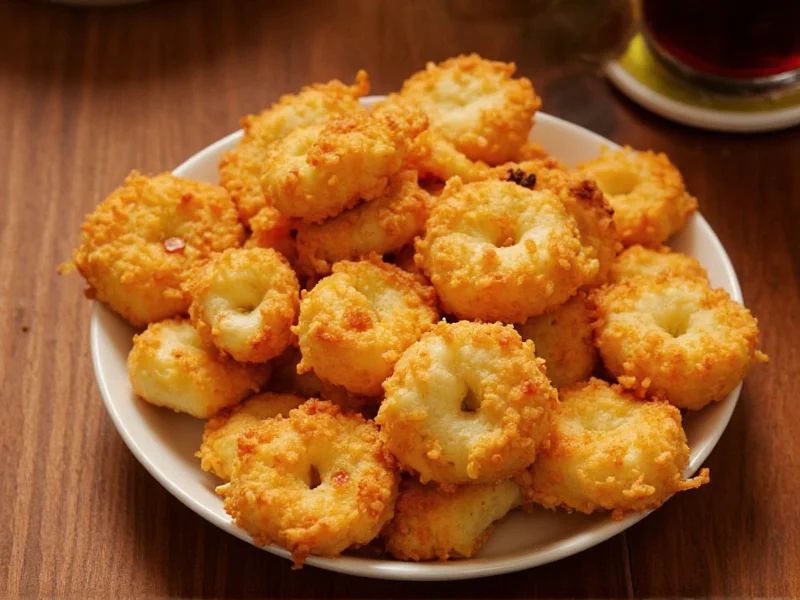Quesabirria has surged in popularity across North America, but many first-time diners wonder about its spice profile before trying this Mexican culinary fusion. Understanding the heat level helps you make informed choices whether ordering at a restaurant or preparing it at home.
What Exactly Is Quesabirria?
Quesabirria combines two Mexican classics: birria (a slow-cooked meat stew) and quesadilla. The dish features a cheese-stuffed tortilla filled with tender birria meat, then dipped in the rich consommé broth before serving. Originating from Jalisco, Mexico, this creation transforms traditional birria into an interactive dining experience where you dip each bite into the flavorful broth.
Components That Affect Spice Level
The spiciness in quesabirria comes almost exclusively from the consommé, not the quesadilla itself. Let's break down the key elements:
| Component | Spice Contribution | Typical Ingredients |
|---|---|---|
| Consommé Broth | Primary source of heat | Guajillo chilies (mild heat, earthy), Arbol chilies (medium heat), occasionally chipotle |
| Meat Filling | Minimal to none | Shredded beef or goat cooked in broth, but fat absorbs most spice |
| Tortilla & Cheese | None | Corn or flour tortilla with Oaxaca or mozzarella cheese |
| Garnishes | Variable | Onion, cilantro, lime; sometimes additional hot sauces on side |
Regional and Restaurant Variations
Authentic quesabirria from Jalisco typically maintains a balanced spice profile that enhances flavor without dominating. However, interpretations vary:
- Mexican street food versions: Often milder to appeal to broader audiences, focusing on the rich, complex flavors of the chilies rather than heat
- U.S. restaurant adaptations: Some establishments increase spice levels to cater to American expectations of "Mexican hot"
- Homemade recipes: Completely customizable—many home cooks adjust chili quantities based on family preferences
When ordering quesabirria at a restaurant, don't hesitate to ask about their specific spice level. Most establishments accommodate requests for milder versions by reducing chili quantities or providing broth on the side.
Comparing Spice Levels to Other Mexican Dishes
Understanding quesabirria's heat in context helps set proper expectations:
- Compared to regular quesadillas: Traditional cheese quesadillas contain no spice, while quesabirria introduces mild warmth from the consommé
- Compared to standard birria: Similar spice profile, though quesabirria often uses slightly less intense broth since it's primarily for dipping
- Compared to pozole: Generally milder than red pozole, which often contains additional dried chilies
- Compared to standard taco sauces: Less spicy than many restaurant hot sauces, but more flavorful than mild salsa verde
Enjoying Quesabirria If You're Sensitive to Spice
Even if you typically avoid spicy foods, you can still enjoy quesabirria with these practical tips:
- Request broth on the side to control how much you dip each bite
- Ask for reduced chili consommé when ordering—most restaurants accommodate this request
- Pair with cooling elements like avocado, sour cream, or a side of rice
- Start with small dips to gauge your tolerance before committing to each bite
- Choose beef over goat as beef tends to absorb less spice during cooking
Remember that authentic quesabirria prioritizes complex flavor over heat. The chilies used primarily contribute earthy, smoky notes rather than intense burn. Many first-time diners surprised by how approachable the spice level actually is.
Creating Perfectly Balanced Quesabirria at Home
When preparing quesabirria yourself, you have complete control over the spice profile. For a family-friendly version that still honors tradition:
- Use a 3:1 ratio of guajillo to arbol chilies for depth without overwhelming heat
- Remove seeds and membranes from chilies before blending
- Add a touch of sweetness with a small piece of piloncillo (Mexican sugar cane)
- Simmer broth for at least 30 minutes to mellow the chili flavors
- Always taste and adjust before serving—spice perception varies greatly among individuals
Understanding is quesabirria traditionally spicy reveals that authentic preparation focuses on flavor complexity rather than heat intensity. The dish's growing popularity stems partly from this balanced approach that appeals to diverse palates while maintaining cultural authenticity.
Is quesabirria spicier than regular birria?
No, quesabirria typically uses the same consommé as traditional birria, so the spice level remains similar. The main difference is that with quesabirria, you control how much broth you dip each bite into, potentially making it seem milder than eating birria with tortillas where the meat is already soaked in broth.
Can I get quesabirria without any spice?
While completely spice-free quesabirria would deviate from tradition (as chilies are fundamental to birria's flavor profile), most restaurants offer mild versions. You can request consommé made with only guajillo chilies (which provide color and earthiness with minimal heat) or ask for the broth on the side to control your exposure to spice.
Why does quesabirria have varying spice levels?
Spice variation comes from several factors: regional differences in Mexican cuisine, chef preferences, type and quantity of chilies used, whether seeds and membranes are included (where most capsaicin resides), and adaptation for local palates in international markets. Authentic Jalisco-style quesabirria maintains a consistent mild-medium profile, but interpretations worldwide differ significantly.
What makes quesabirria spicy besides the chilies?
The primary heat source is always the dried chilies in the consommé. However, some restaurants add complementary spicy elements like chopped jalapeños in the garnish or offer additional hot sauces. The meat itself isn't spicy, but may absorb some heat from the long cooking process in the chili-based broth.
How can I reduce the spice level of quesabirria after it's made?
If your quesabirria turns out spicier than expected, several remedies can help: add dairy like sour cream or cheese to counteract capsaicin, serve with rice to dilute the heat, include avocado which binds with capsaicin, or prepare a side of lime wedges as the acid can help neutralize spice perception. For the consommé specifically, adding a small amount of sugar or honey can balance the heat.











 浙公网安备
33010002000092号
浙公网安备
33010002000092号 浙B2-20120091-4
浙B2-20120091-4